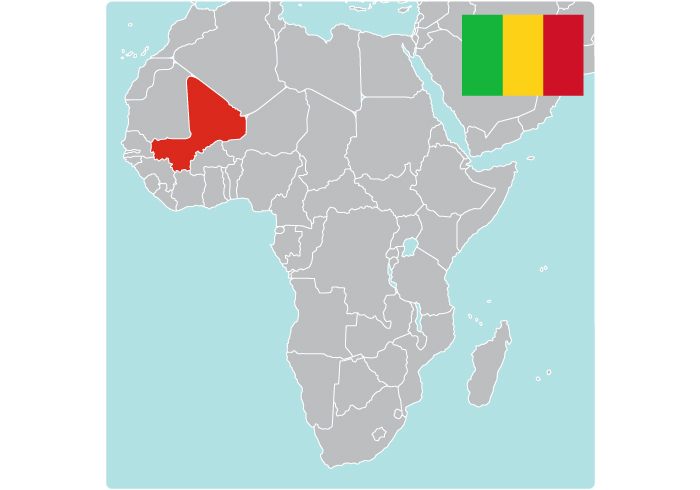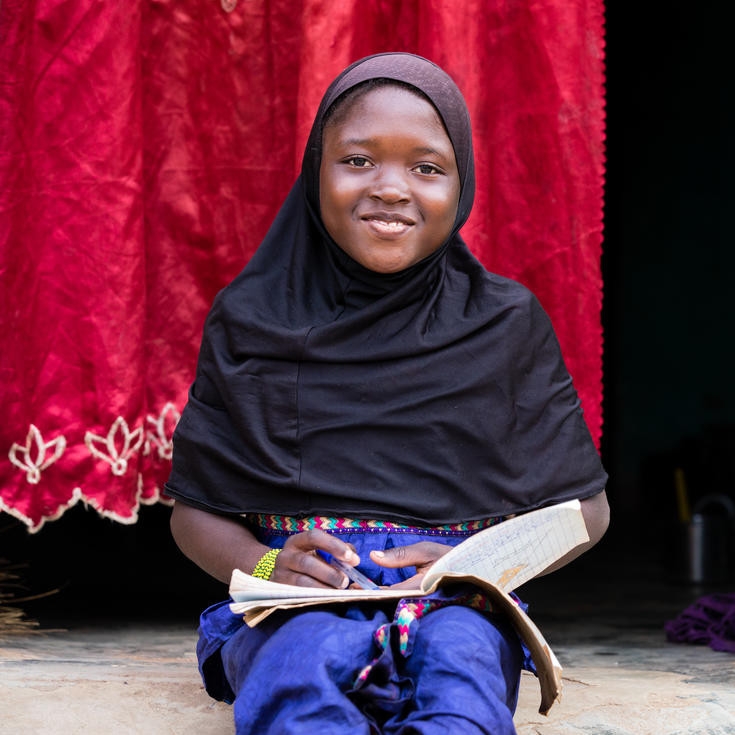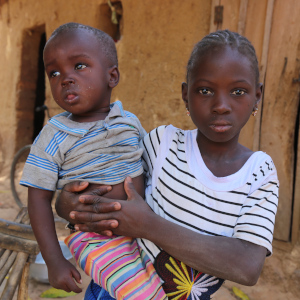Help Children in Mali
Once home to pre-colonial empires, Mali is a large, arid, landlocked country in western Africa. For centuries, its northern city of Timbuktu was a center for commerce, culture and learning. But after its conquest, then independence from France, Mali has suffered devastating droughts, political instability and conflict that continues to this day.
Mali remains a deeply impoverished, conflict-plagued nation – and one of the world’s toughest places to be a child.
Children always bear a disproportionate burden in conflict. Mali’s children living in conflict are right now suffering severe child rights violations, including killing and maiming, recruitment and use by armed forces, abduction, attacks on schools and hospitals, denial of humanitarian access, and rape and other forms of sexual violence.
Challenges for Children in Mali
Childhood in Mali – with some of the world’s worst rates of child mortality, children out of school, child marriage, early childbearing, child murders and more – is under threat. You can help.
-
1 child in 10 dies before their 5th birthday, 14 times the U.S. rate
-
27% of children suffer from stunting due to malnutrition
-
51% of children are out of school, with 37% engaged in child labor, instead of learning
-
42% of girls (ages 15-19) are married, and 1 in 6 gives birth – and 74% of girls (ages 15+) struggle to read and write
-
7 children in every 1,000 are murdered
-
36% of people live in poverty

Our Results for Children in Mali
Despite conflict and crisis, Mali has overcome great challenges to improve children’s survival and reduce stunting, and it is committed to ending child marriage, thanks to the vital work people like you help support. Together, we changed the lives of over 1,495,000 children in Mali last year.

Awa, age 10, represents hope for herself and Mail when she says, “I know that going to school is very important because if I work hard, in the future, it can open doors for me.”
-
1,011,000 children healthy and nourished
-
678,000 children educated and empowered
-
101,000 children protected from harm
-
232,000 children lifted from poverty
-
1,225,000 children aided in crisis
Our Work for Children in Mali
There is a great need and demand for Save the Children's programs in Mali, where we have worked since 1987. Thanks to our supporters, we are a leading charity for Mali’s most vulnerable children, implementing programs in health and nutrition, education and livelihoods, and child protection, as well as emergency response.
Most of our current programming focuses on health and nutrition. Our education work focuses on access and quality of education, as well as water, sanitation and hygiene at schools. While our child protection projects focus on community-based case management and the establishment of child-friendly spaces. Many of these projects are implemented in the context of emergency response.
Here are some recent examples of our work:
A healthy start in life
- Since 2004, we have been the newborn health lead on the USAID flagship maternal, newborn and child health programs in 30 countries, including Mali – including the Access to Clinical and Community Maternal, Neonatal and Women’s Health Services program (ACCESS, 2005-2009), the Maternal & Child Integrated Program (MCHIP, 2010-2014), and the Maternal & Child Survival Program (MCSP, 2015-2019)
- Building on emerging evidence on the importance of water, sanitation and hygiene (WASH) programs to improved nutrition, we’re implementing our signature Clean Household Approach, using effective behavior change, marketing and policy strategies to promote household behaviors that reduce the risk of childhood diarrhea and other conditions
- We led a six-year USAID-funded project, called Project Nutrition et Hygiène project (2013 2019), which supports harmonizing the actions of communities, the Ministry of Health and the private sector to improve the growth and development of Mali’s children, supporting the integration of quality nutrition counseling into routine service delivery, using a variety of community-based approaches
- Along with partners, we’re implementing a multi-year, USAID-funded Development Food Security Activities project to address undernutrition and chronic food insecurity through targeted food assistance and/or cash and multi-sectoral interventions
- We’re implementing our integrated community case management (iCCM) approach in Mali, a broadly endorsed global strategy to reduce child mortality, in which a health system trains, supplies and supervises community health workers to manage sick children who have limited access to facility-based health services – delivering appropriate, lifesaving treatments closer to where children live
The opportunity to learn
- Through our early learning programs, we’re supporting knowledge, behavior and physical growth to ensure a healthy and positive foundation that prepares children for success – in school and life
- We’re improving education for children by helping them learn vital reading and writing skills in early grades and by promoting an environment that protects children and supports their learning
- We’re bringing safe, clean water to communities and schools in impoverished areas, as well as providing malaria treatments, deworming and micronutrient supplies to prevent children suffering from preventable and treatable diseases, such as malaria, anemia and various hygiene-related illnesses, as well as waterborne illnesses like cholera, typhoid and diarrhea
- We hosted nearly 10,000 young people and adults in information sessions about teen pregnancy, as part of outreach efforts in 45 villages, resulting in significant reduction in teen pregnancies
- Now, we’re working on seasonal malaria chemotherapy for school-age children, piloting the use of two different platforms – testing reaching children through communities vs. schools
Emergency response
- Our Household Economy Analysis approach is being used to inform national plans to reduce poverty and early warning systems in several countries African countries, including Mali
How to Help Children in Mali
You can create change that lasts a lifetime for children in Mali – in so many ways.
Donate
Support Save the Children’s mission. Donate to help children in Mali and around the world grow up healthy, educated and safe.
Join Team Tomorrow
Join Team Tomorrow and your monthly donation will go toward addressing the needs of children affected by today’s most urgent issues.
Browse the Gift Catalog
Give a meaningful gift that will help transform children’s lives and futures in Mali and beyond. There’s something for everyone!
Sources: Facts and statistics have been sourced from Save the Children’s monitoring and evaluation experts, as well as our thought leadership publications, including our Global Childhood Report 2020 and Stop the War on Children 2020 report. Other sources include CIA World Factbook and BBC Country Profiles.
Photo: Victoria Zegler / Save the Children.
Thank you for signing up! Now, you’ll be among the first to know how Save the Children is responding to the most urgent needs of children, every day and in times of crisis—and how your support can make a difference. You may opt-out at any time by clicking "unsubscribe" at the bottom of any email.
By providing my mobile phone number, I agree to receive recurring text messages from Save the Children (48188) and phone calls with opportunities to donate and ways to engage in our mission to support children around the world. Text STOP to opt-out, HELP for info. Message & data rates may apply. View our Privacy Policy at savethechildren.org/privacy.



